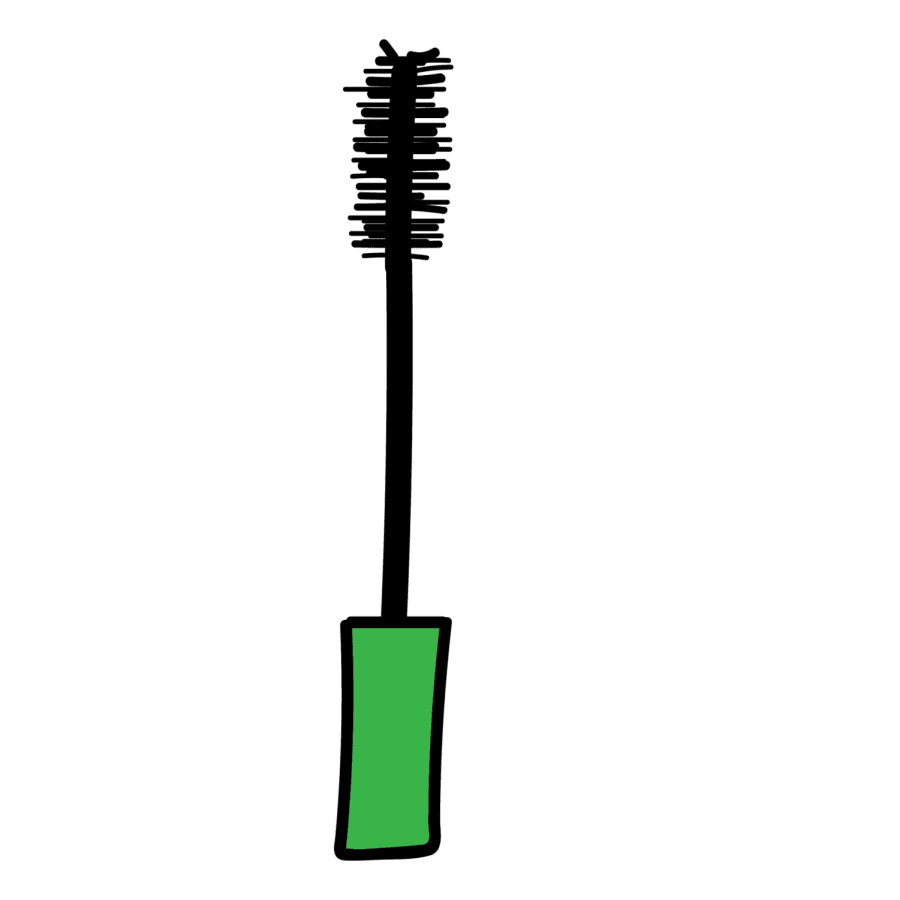Avoiding cosmetic reactions from unsafe makeup
Infertility and death are only some of the reactions that can come from unsafe makeup
Red and blotchy skin, acne breakouts, hormone imbalances potentially leading to infertility or even death are all side effects of the products you use every day.
Octinoxate, Tocopherol, Dimethicone and other chemicals are found on the backs of products you use every day. Severe side effects of these chemicals are often covered by the media when events occur, people use them every day, so they can’t be that bad, right?
Tocopherol is a common additive to not only makeup but also food, as it is vitamin E. Cosmeticsinfo.org states Tocopherol is on the Food and Drug Administration’s list of “Generally Recognized As Safe” list. However, people should be aware that vitamins are chemicals too, and the same can be said about minerals. “Natural” or “mineral makeup” is thought of as the alternative to chemically polluted products. But even these products have potentially dangerous chemicals.
“There isn’t any regulation that defines when a cosmetic brand can call their product ‘mineral; makeup,” according to Goodonyou.eco. “So basically, if it contains a mineral as a base ingredient, it can be labeled as mineral makeup.”
Octinoxate is an active ingredient found in many cosmetic products. It is added as a way to protect skin from UV rays. EWS Skin Deep Cosmetics Database ranks it as a “Moderate Overall Hazard,” saying it “is shown to have hormone-mimicking effects.” In addition to these effects, Safecosmetics.org said Octinoxate can exhibit behaviors “linked to harmful effects on reproductive organ development.”
Dimethicone is a “silicon-based polymer” used to lubricate and condition skin according to EWS Skin Deep Cosmetics Database. While the database cites the chemical as low to moderate overall hazard, it also notes it is “classified as expected to be toxic or harmful” to non-reproductive organs. Dimethicone is also known to trap all “bacteria, sebum and impurities” under it, according to Bewell.com. The article also notes that this coating chemical prevents the skin from its normal activities, such as “sweating, temperature regulating, sloughing off dead skin cells, etc.,” which can cause serious problems if not handled with proper skin care techniques.
There are many more chemicals within makeup and other skincare or hygiene products. The ones listed above are common chemicals found in cosmetic products. The questions then become, “Are these products safe?” and, “Should you be concerned about what’s in the products you use?”
Dr. Phillip Funk, associate dean for health of programs and initiatives at DePaul, said, “Yes.” He acknowledged that companies want business so they will go through a testing process to make sure their products are safe in a number of ways.
“But that’s certainly not a safety guarantee on an individual basis,” he said.
“Different people will develop allergies to things, and we don’t have a good handle on what makes one person develops an allergic reaction,” Funk said. “Some people will develop what is called ‘delayed-type hypersensitivity,’ which is kind of like an allergy.”
Delayed-type hypersensitivity is understood to be a reaction to an inflammatory agent somewhere between six and 72 hours after exposure, according to Science Direct. These reactions can be caused by anything new: a new cream, a new mascara or even a new piece of jewelry. It is unclear what will cause a reaction in a specific individual. It is up to the individual to know what is best for their skin and buy what works best for them.
“Majority of what I use is Glo-Minerals,” DePaul student Amber Trifanovaite said. “It doesn’t cause breakouts, which for me is an issue sometimes.”
To Trifanovaite, quality is the most important part of her makeup purchasing decisions. But she is also conscious of which brands test on animals or have harmful chemicals in their products.
“The price is more expensive, but for the quality, I think it’s worth it,” Trifanovaite said. DePaul student and Maybelline Brand Ambassador Jordan Dockery approaches makeup differently.
Dockery receives free PR boxes from Maybelline as part of her Collage Ambassadorship. She tries the makeup and promotes it on her Instagram and at live events. She had the opportunity to travel with Maybelline to New York Fashion Week as an ambassador, attending events and promoting the brand.
Dockery used to pay attention to products that are cruelty-free and actively read what was on the back of cosmetic products. She knew her skin reacted to SPF chemicals and avoided those and other chemicals she knew would give her a bad reaction.
“I phased out of that when my skin cleared up, which is awful,” Dockery said. “If I’m receiving free makeup, I’m going to use that free makeup.”
Dockery still pays attention to what her brands are up to. She has the opportunity to work with the PR team at Maybelline and knows they follow rules from across the world regarding choosing ingredients and proper testing. But that doesn’t make products transparent.
“I know when it comes to distribution and deciding the products, a lot of that is done outside of the US,” Dockery said. “So, sketchier, change some perspectives.”
Both Trifanovaite and Dockery recognize what their skin needs and choose accordingly. They may not seek products the same way, but they do care about the condition of their skin. These are personal decisions; everyone chooses makeup for different reasons. There are no right answers here. But Funk does have some advice for staying safe.
“Really start paying attention to your own body,” Funk said. “If you’re trying something new and you think, ‘My face feels a little itchy,’ then maybe stop using what you’re using and think about your time of exposure.”












